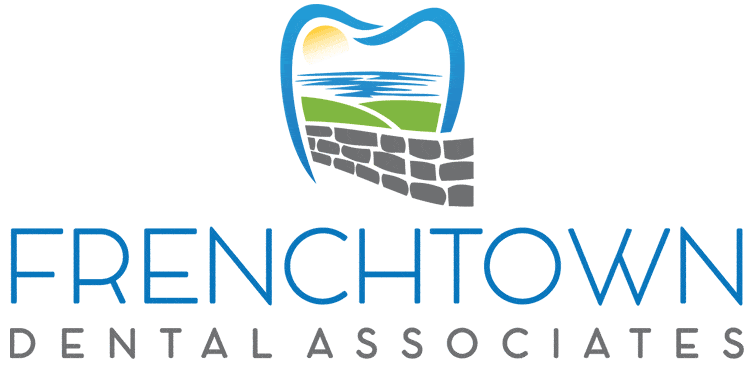TMJ Treatment in Pawcatuck and East Greenwich

Stonington and Frenchtown Dental Associates provides TMJ Treatment in Pawcatuck, CT and East Greenwich, RI. Call us to learn more and schedule an appointment.
The temporomandibular joint (TMJ) connects the jawbone to the skull. TMJ disorders often cause discomfort in the cheek, jaw, or ear areas and can affect normal jaw function.
Get relief from jaw pain and discomfort with expert TMJ treatment at Stonington and Frenchtown Dental Associates. Our experienced team is here to help you regain comfort and improve jaw function with personalized care tailored to your unique needs.
Dr. Cariappa prides herself on being able to help patients overcome TMD issues via multiple different treatment modalities including, but not limited to, splint therapy, full mouth rehabilitation, emergency acute pain treatment, TENS unit treatment, and occlusal equilibration using t-scan force sensors to adjust a patient’s bite.
What are TMJ Disorders?
TMJ disorders, or temporomandibular joint disorders, affect the joints that connect the jawbone to the skull. These conditions can cause pain in the jaw, face, and surrounding areas, often making it difficult to chew, speak, or even fully open the mouth. Common causes include stress, grinding or clenching teeth, arthritis, or injuries to the jaw. Fortunately, with the proper treatment, you can manage TMJ disorders effectively to restore comfort and functionality.
Why Choose Stonington and Frenchtown Dental Associates?
Expert Care at Every Step: Our team, led by Dr. Shanthi Cariappa, specializes in providing advanced TMJ treatments, including splint therapy, full mouth rehabilitation, and bite adjustment using TENS technology and T-Scan force sensors. You’ll benefit from our expertise in diagnosing and addressing your specific symptoms for lasting relief.
Personalized Treatment Plans: At Stonington and Frenchtown Dental Associates, we understand that no two patients are alike. That’s why we tailor our approach to suit your unique needs, offering a variety of non-surgical and therapeutic solutions to relieve discomfort and improve your quality of life.
State-of-the-Art Technology: Our practice is equipped with advanced tools to diagnose TMJ disorders and deliver precise, effective treatment accurately. With us, you're in expert hands every step of the way.
Caring For Our Patients: Since we are a small practice, we get to know our patients well, enabling us to create long-lasting relationships.
Signs and symptoms of TMJ disorders are frequently intensified by stress and can include:
- Jaw Pain or Stiffness: Persistent soreness or tightness in your jaw muscles can make it uncomfortable to eat, speak, or move your jaw. This symptom is one of the most common indicators of a TMJ disorder.
- Headaches: Frequent headaches, especially around the temples or behind the eyes, may be caused by strain and tension in the temporomandibular joints.
- Popping or Clicking Sounds: If you notice clicking, popping, or grinding noises when you open or close your mouth, it could be a sign of joint misalignment or dysfunction.
- Difficulty Chewing: Trouble biting or chewing evenly might indicate issues with the alignment of your jaw or teeth, which are often connected to TMJ disorders.
- Locking Jaw: If your jaw occasionally locks in an open or closed position, this could signal a more serious TMJ issue that needs immediate attention.
Frequently Asked Questions About TMJ Disorders
What causes TMJ disorders?
TMJ disorders can result from various factors, such as teeth grinding, arthritis, jaw injuries, or even prolonged stress. These factors strain or damage the temporomandibular joints, leading to pain and dysfunction.
How are TMJ disorders treated?
Treatment depends on the severity of your condition. Options include self-care strategies like using ice packs and avoiding extreme jaw movements, non-surgical solutions like splint therapy, and advanced treatments like TENS therapy and occlusal equilibration.
Are TMJ disorders permanent?
With proper treatment, TMJ disorders can often be managed or resolved. It’s essential to seek early intervention to prevent symptoms from worsening.
How is TMJ diagnosed?
Our dental team uses advanced diagnostic tools and a detailed physical examination to pinpoint the cause of your symptoms. We may also consider your medical history and discuss any habits, such as teeth grinding or clenching.
Can stress make TMJ worse?
Yes, stress often contributes to TMJ symptoms by causing teeth clenching or tension in the jaw muscles. Learning stress-reduction techniques may help alleviate some of your symptoms.
Will I need surgery for TMJ?
Most patients do not require surgery. Non-surgical treatments like splints, medication, and therapy are often effective. Surgery is typically considered a last resort for severe cases.
How soon can I expect relief from TMJ symptoms?
Relief depends on the treatment plan and the severity of your condition. Many patients report improvement within a few weeks of beginning treatment.
Does insurance cover TMJ treatment?
Coverage varies by provider. It’s best to consult your insurance company to understand what’s included in your plan. Our office is happy to help you navigate your coverage details.
Call Stonington and Frenchtown Dental Associates
Don't live with the discomfort of TMJ disorders. Schedule an appointment with Stonington and Frenchtown Dental Associates today to explore practical solutions and regain your quality of life.
